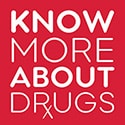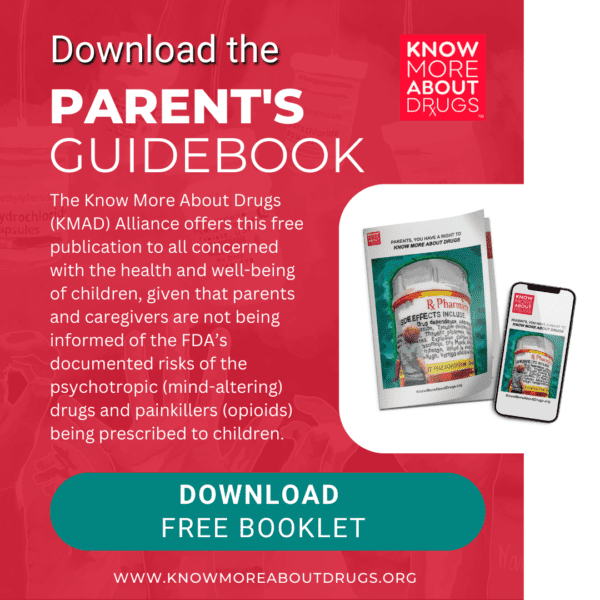A Mother’s Story: From Tragedy to Advocacy
On January 10, 2004, our 12-year-old daughter, Candace, died tragically by hanging herself. In the months that followed, there were days when all I could do was lay on the floor in a fetal position and cry. Nothing in my life made sense. My loss was unbearable. I couldn’t eat; I couldn’t sleep. The nightmares were debilitating. I was a victim.
A Mother’s Story: From Tragedy to Advocacy
On January 10, 2004, our 12-year-old daughter, Candace, died tragically by hanging herself. In the months that followed, there were days when all I could do was lay on the floor in a fetal position and cry. Nothing in my life made sense. My loss was unbearable. I couldn’t eat; I couldn’t sleep. The nightmares were debilitating. I was a victim.
How could my child have committed suicide? She had never been depressed or troubled. The only issue she ever had was being nervous about a school test, and she had been prescribed an antidepressant by a psychiatrist for this.
Desperate and seeking answers, my husband and I attended the February 2004 FDA hearings on antidepressants and their side effects. We wanted to understand what had happened to our daughter and if the drug she had been prescribed could have prompted her sudden and violent death. For eight hours we sat and listened as parent after parent stood before the FDA, telling similar versions of our story—how children with no prior history of suicide or depression had committed suicide while under the influence of an antidepressant. Things slowly started to make sense. This had not been Candace’s choice. I was devastated and angry that I had never been warned of the possible side effects. But I at least now had a reason as to why this had happened. We were no longer alone, but there was still tremendous pain and agony.
There was no great defining moment when I realized I had changed from a victim to a survivor. I was able to sleep more easily and began eating small meals. My weight loss had become so significant that my doctor thought I had developed a thyroid condition. I knew I was just suffering from the loss of my daughter. Now when I got up in the morning, I could volunteer for a few hours at my daughter’s school, shop for groceries, do laundry or other simple tasks. The worst possible scenario had taken over my life, but I had survived.
It took more than seven months for me to make the change from a survivor to an advocate. I had really admired those brave parents who had testified at the FDA hearings. They had spoken aloud my thoughts, my words, my story, my pain. Now I wanted to tell my own story, speak of my pain. On September 13, 2004, I had that opportunity at the next FDA hearings. Not only was my three-minute testimony picked up by the local news stations, but I was quoted in the New York Times the following day. The media frenzy spread. That led to an interview on the Today Show and CNN when the FDA “black box warning” on antidepressants causing suicidal ideation in children was finally announced. During the media frenzy that followed on the black box warnings, Candace’s story was included in many of them.
My daughter’s story was now finally being told. I had become an advocate.
I began working with Consumers Union as a Patient Safety Advocate. I joined other organizations that supported my mission to give parents all the information available on drug side effects so they could make informed choices.
I also became involved with several award-winning documentaries about the dangers of antidepressants and anti-psychotics when prescribed to children. I was no longer afraid to speak out; nor was I lost. It was too late to save my own daughter, but I felt that it was my responsibility to warn other parents that they must get fully informed.
Fifteen years ago I had asked for more information on the antidepressant prescribed my daughter and was told there wasn’t any. I can assure you if I had been told that suicidal ideation was a possible side effect of the drug she had been prescribed, I would have made different choices.
It’s been 15 long years since my daughter’s death, and I continue to honor my angel child by helping other parents make informed choices. People from all over the world have called or written to me requesting information and resources after hearing of my story. Others contact me to share their own similar tragedies. I am an advocate for life as this dire situation continues of parents not being fully informed of prescribed psychotropic drug risks. We must continue to champion informed consent. We must continue to help parents make educated and informed choices.
I chose to become an advocate and activist for those who have not yet found their voice. I want to lead by example.
Letting parents know that the FDA has Medication Guides available online, which at least highlight the most dangerous and documented side effects of the drugs prescribed their children, is a step in the right direction.
Please join with me and become an advocate. Together we can become a greater voice to protect children and inform parents.


